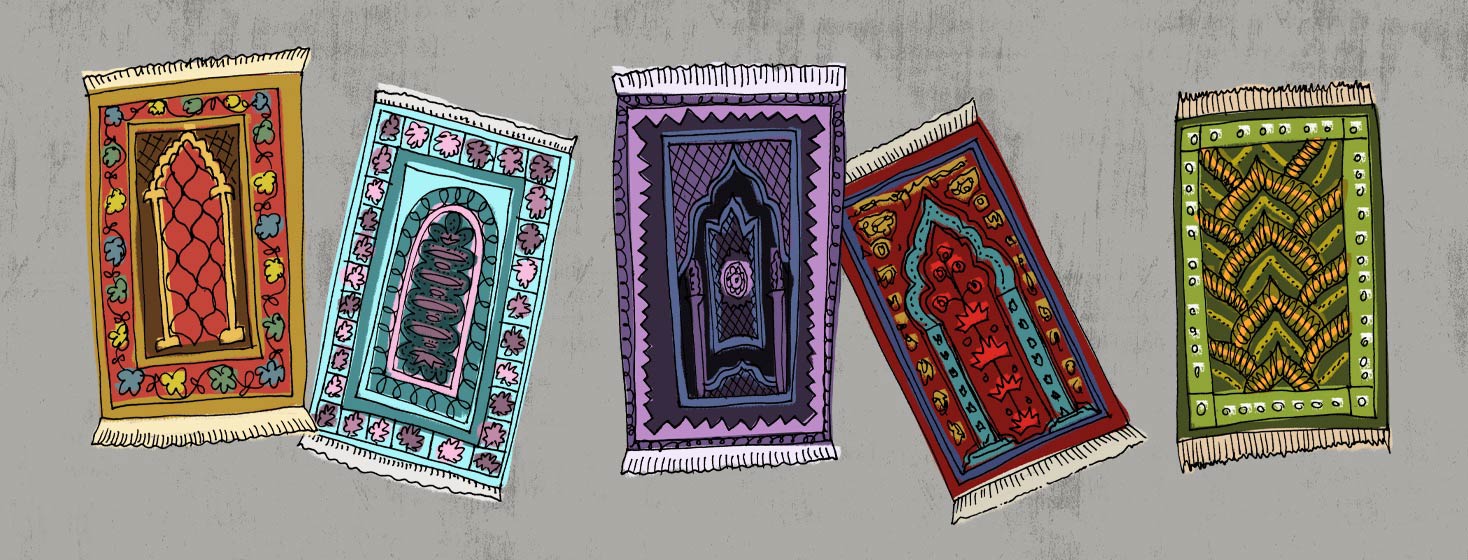My First Ramadan with NMOSD: My Experience with Fasting
Ramadan is the ninth month of the Islamic year and is considered very special within the Muslim community. During this month, Muslims fast from dawn to dusk, which is known as ṣawm in Arabic, and is part of the five pillars, or principles, of Islam.
A take on fasting during Ramadan
There are many reasons why Muslims fast during Ramadan. Iqbal Akhtar, associate professor at Florida International University states “at its core, fasting is about conquering human pride to connect with God. Muslims believe that fasting develops submission to God, empathy with the poor and repentance and gives time for spiritual introspection.”
I didn't want to miss out on observing Ramadan
Ramadan was very dear for me and I didn't want to miss out on it just because I had been diagnosed with a chronic illness. I felt like I needed to participate in Ramadan, to better myself and to gain inner peace after such an overwhelming year. Since I can remember, fasting always increased my tiredness and fatigue. I was afraid it would be worse this time around, since my body was weaker.
It wasn't easy at first
The first week was difficult, but the fasts this year ended earlier, which was an advantage. I remember I had to sit for exams whilst fasting in high school, fasting didn't end then until around 11:00 pm. This was easy work compared to back then. I fasted continuously for a week but began to neglect my diet, which was gluten, dairy, and egg free because, after starving all day, you just want to eat everything in sight. I had headaches everyday which would only fade once I ate.
Nerve damage in my legs due to NMO
Since my attack, my leg has had lasting damage and, because of that, I’ve had to take painkillers daily for relief. I couldn't do that while fasting, though. The second week was rough because I wanted to keep all the fasts but had to miss out on some in order to take painkillers throughout the day. I couldn't help but to feel guilty for missing out but had to remind myself it wasn't my fault.
Keeping up with my routine
The third week I began to neglect my vitamins and supplements like lion's mane, iodine, zinc, and vitamins D and K. I felt so tired and sluggish from not being able to eat that I couldn't be bothered to keep up with a schedule. However, whilst I was fasting, I felt like a lot of swelling I had from steroids reduced and I lost around 8 lbs.
I was determined
In the fourth week, I kept all the fasts because the last ten days are considered very important and beneficial to the soul and body. I began to get used to the routine of fasting and didn't feel so hungry. I also noticed, minus my leg, that my body was flaring less as I wasn't consuming a lot foods that would trigger my symptoms. In the last week, I also felt very close to God. I was praying a few times a day and making effort to read the Quran.
I focused on myself and my relationship with God
Emotionally, I had to work on myself and I feel I was able to do that this Ramadan. I cut off distractions and focused on myself and my connection to God. Instead of overthinking my life and my future, as many chronically ill people do, I began to tell myself that I just need to rely on God. My life didn't turn out like this because of me; I am not the reason behind my chronic illness.
Expressing gratitude
During this time I also became more grateful for the things I have. When we're fasting we get a little taste of what individuals who can't afford to eat go through. But luckily, after breaking our fast, we are able to eat food while some aren't. I also introduced walks every night after eating my meal, which kept me active, and it was also nice to get some fresh air. I have kept that as part of my routine even after Ramadan and have also been able to cut down on eating a lot. I am a stress eater and fasting helped me reduce that habit.
It was hard, but I adjusted
Physically it was hard for the first two weeks, but once you get used to the routine, it becomes easier. If I could go back in time, I would try to make sure that I stuck to my diet and took all my supplements. I may have not been as fatigued as I was if I had stuck to my routine.
What questions do you have for Hali about fasting for a religious observance?

Join the conversation